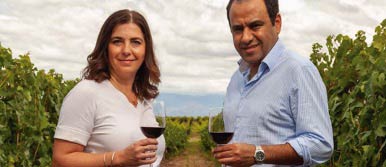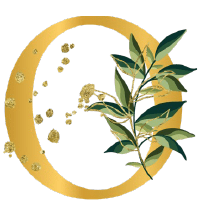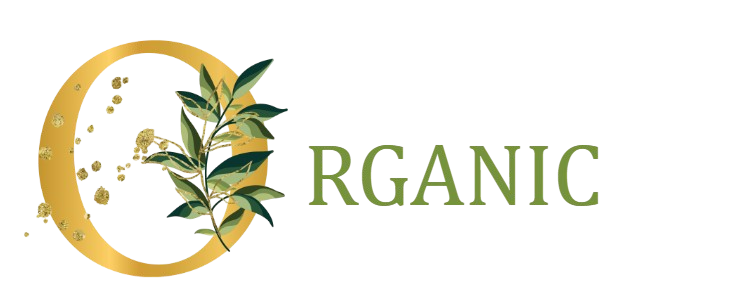Welcome!

Welcome to Organic 101!
By way of introduction, we are Anne Bousquet and Labid al Ameri, partners in life and in business, and passionate advocates for all things organic.
Our first encounter with organic farming dates back to the mid-nineties and the early days of our involvement in Domaine Bousquet, a certified organic wine estate in Argentina’s Uco Valley, founded by my father. With backgrounds in economics (me) and finance (Labid) and no experience in agriculture, we were ill-prepared, and the learning curve was steep — as you might imagine. Let’s start with the terminology: sustainable, organic, certified organic, biodynamic, natural. Information back then was scarce, scattered, confusing and contradictory. It still is. Our goal with this site is to help resolve that.
Interest in earth-friendly wines has exploded over the past decade, bringing with it a lot of questions. And we’ve learned a great deal in that time. Whether you are in the wine business or a wine lover looking to know more, we hope that you will find this a useful resource.
A final thought. Is this site self-serving? Of course! The more people we can convert to drinking organic, the better! We firmly believe that earth-friendly wines are good for the planet and here to stay. Spreading the gospel about these “green” wines is a good thing for all.
Anne & Labid
 rganic Defined
rganic Defined
USDA Organic
The grapes are grown without the use of synthetic fertilizers, and all ingredients going into these wines, which includes yeast, must be certified organic. No sulfites may be added to these wines, naturally occurring sulfites are permitted. Only these wines may display the USDA organic seal.

Made with Organic Grapes
Means entirely made from certified organic grapes. Additional ingredients used in the winemaking process need not be organic, but they cannot be produced with the use of pesticides or synthetic fertilizers. Wines must be produced and bottled in an organic facility, and sulfites must be limited to 100 parts per million or less.
A Brief History of Biodynamics
Agrochemicals emerged in the 19th century and began to gain acceptance.
During the first half of the twentieth century, their use became widespread when the few grape growers to have overcome phylloxera, World War I, the Great Depression, and World War II massively turned to agrochemicals to lessen their workload. In the process, vines became less and less able to survive without the chemicals.
By the 1960s, the poor state of soils gave impetus to the theory of biodynamics created in 1924 by Austrian philosopher Rudolf Steiner. He proposed that chemicals be replaced by one of nine herb and mineral-based preparations and that all tasks be done at their most effective time, based on lunar, solar, planetary rhythms.
The history of “green” farming is roughly divided into three waves.

Rudolf Steiner, founder of biodynamic agriculture.
1960s–early 1980s
Young idealists embrace organic and biodynamic principles. Usually small, artisanal operations, they found the first organic-certified wineries.
Late 1980s–2000s
Two trends take hold. Led by marquee estates in Burgundy, Alsace and the Loire, France becomes the epicenter of biodynamic winemaking. Blending eco-idealism and business savvy, wineries around the world adopt organic farming methods. Selling good organic wines becomes a business model.
2010 to today
Earth-friendly practices in some form or another start to become an industry norm – from artisanal, tiny production estates to huge operations managed by global companies. The “less is more” movement goes further with natural, vegan and “zero-zero” wines.
Green Certifications — Defined
Aims to reduce environmental degradation by reducing use of chemicals, encouraging biodiversity and a healthy soil.
Sustainability means acting as a steward for future generations, seeing the land as a resource that must be replenished rather than overused.
More flexible in the vineyard and winery than organics or biodynamics, it denotes a less stringent approach. Chemicals can be used in a pinch. Because it takes economic sustainability into account.
More recently, the term has expanded in meaning to include social and economic impact – a holistic view that also looks at working conditions, community involvement, packaging, transportation and consumer education such as moderation campaigns.
No man-made chemicals vs. just minimizing use as with sustainability. All additives are organic, in the vineyard and at the winery (fining products, yeast, etc.). Grapes are grown organically and there are no-GMOs.
Because of differing regulations in the U.S. and EU concerning sulfites, EU wines labeled “organic” in the EU may have to state “made with organic grapes” when sold in the U.S.
In the U.S., no sulfites can be added during winemaking and the total cannot exceed 100 parts per million. In the EU, it’s 120 ppm for reds and 150 ppm for whites and rosés.
Combines the methods of organic agriculture (no man-made chemicals, no pesticides) with a philosophy where the land is part of the cosmos, influenced by tides, the moon, and stars.
Activities are planned according to the phases of the moon and time of day – there are root, leaf, flower and fruit days and hours.
The emphasis is on prevention of “illness” by making vines naturally more resistant to disease. Homeopathic infusions from plants and dung compost are the “foods” used to nurture the plants. Though quite spiritual in basis, winegrowers around the world see this agricultural method as producing not only healthier soil, but fruit with thicker skins, plants with stronger wood, and earlier ripening.
Additional Certifications

Gluten-free certification is a process designed to protect consumers with celiac disease and other gluten-related disorders.
There are two places gluten can “enter” a wine: during fining and with the barrel. However, wheat-based fining agents are extremely rare. In barrels, a wheat-water paste is sometime used to seal the space between the barrel body and the head. The total amount of flour used is one ounce, which translates into a theoretical transfer of 5 ppm — one quarter of the allowable amount for US gluten-free certification of 20 ppm) if all the flour leached into the wine because the 60-gallon barrel was leaking.
Bottom line: nearly all wines are gluten-free, whether they have certification or not.
Gluten Free certifies the product.

Kosher wine is a grape wine that is produced according to Judaism's religious and dietary laws. In order for a wine to be kosher, it must be created under a rabbi's immediate supervision, with only Sabbath-observant Jewish males touching the grapes from the crushing phase through the bottling.
Kosher-for-Passover wines must be made in a cellar that's free of bread, dough, or grain products, or, perhaps most importantly, leavening agents (such as any non-kosher non-indigenous yeasts, which are often added in wineries to kickstart fermentation

This label guarantees the wine is vegan; the wine has not come into contact with any animal products during production or bottling.
In practice, that means that fining – the act of removing proteins called “colloids” that later cause a wine to be hazy – is done not with egg whites, casein (found in milk) or isinglass, a product derived from fish bladders, but with bentonite clay carbon, limestone, kaolin clay, plant casein or silica gel.
In bottling, the bottle is not sealed with beeswax or with compound corks made using milk-based glues.
Vegan certification, in general, does not cover what happens in the vineyard – so guano, for example, can be used to fertilize.
Vegan certifies the product.
Are organic wines more “fragile,” given the use of fewer preservatives?
- Yes. Sulfites are the preservative used to make sure your wine doesn’t turn vinegary, cloudy or develop stinky flavors. Even some makers of “natural wines” (see “natural wines”) will add a tiny amount of SO₂ (sulfur dioxide) to stabilize the wine just before bottling. Many natural wines do have beer-like or apple cider notes — a plus or a minus depending on your viewpoint.
- At Domaine Bousquet, our “Virgen” line of wines have no sulfites added during winemaking. To keep the fresh fruit quality we want, extra precautions are taken: keep the winery squeaky-clean, store the wines at a cooler temperature post-fermentation, taste the wine weekly over a longer period to make sure nothing “bad” is happening. And finally, the wine is swaddled in thermal blankets to keep it cool during the journey to markets around the world.

Are organic wines preservative-free?
- Virtually no wines are 100% “preservative-free.” Sulfites (see “Sulfites”) are used as a preservative. Buy from a reputable producer, whether organic or not. The goal is to use the least amount possible: Too little and the wine may taste funky; too much and the wine may be lifeless.
Are Organic Wines Healthier?
Agrichemicals
Some organic producers argue that we ingest the synthetic sprays from the vine’s sap and the grape skins. Opponents point out that after you spray, there is a legally mandated waiting period before you can harvest to allow the chemical to degrade. And, if there is any residue, it will be eliminated during any of these winemaking steps: removal of skins after pressing, clarification, fermentation, filtration. Bottom line: definitely healthier for the workers in the field and winery, but not a big factor for consumers.
Hangovers
Histamines may aggravate hangovers. Bottom line: Moderation in consumption is the best preventative!
Histamines
New research points to biogenic amines (BAs) as the possible culprit responsible for flushes, nausea and exacerbating hangovers. Histamine is a BA found in fermented products including alcoholic beverages, matured cheese and fermented vegetables. In winemaking malolactic fermentation increases histamines. Red wines have 20% to 200% more histamines than white wines. “Quality,” organic production does not impact histamine levels. To date, there is no agreement on how many people are allergic, nor what a reasonable histamine level might be.
Sulfites
This is such a hot topic that we have a whole section to it. From the production standpoint, quality producers believe wines taste more “alive” when sulfite use is minimized. If you are not in the high-risk category, buy from a quality, organic/biodynamic producer, with minimal use of sulfites.
Sulfites — Defined
Are Organic wines sulfite-free or do they just contain fewer sulfites?
- The short answer is “no” and “possibly.” There is no such thing as “sulfite-free wine” as all wine contains infinitesimal amounts of sulfites (around 5 ppm), which are a natural byproduct of fermentation. Sulfite content in wines ranges from 5 to 250 ppm, with a legal limit in the U.S. of 350 ppm.
- Dry wines have fewer sulfites than sweeter wines, and red wines tend to have fewer sulfites than white. A well-made red wine (not necessarily organic) has between 50–75 ppm, with good dry whites around 100 ppm.
- Wines from a quality producer such as Domaine Bousquet clock in at an average of 50 ppm.
- If you are part of the 0.5% to 1% of the population who should avoid sulfites, look for producers making “natural wines.”
Why are sulfites in winemaking?
Sulfites are used for their antioxidant and antimicrobial properties. Uses include: protecting grapes on warm days en route from field to winery, helping start fermentation, stopping fermentation, protecting the wine during racking, and preventing oxidation prior to bottling. Broadly: high-acid wines are more stable; red winemaking uses fewer sulfites than white; sweet wines require the most help to prevent spoilage.
Fun Facts
Gordon Shepherd, a professor of neuroscience at Yale University, says drinking wine “engages more of our brain than any other human behavior,” even more than solving tough math problems or concentrating hard on a piece of music.
Did you know that dried blood powder was sometimes utilized in the old days to fine wine? And if you think that is an old wives’ tale, current biodynamic Demeter regulations specifically prohibit the use of blood.
Romans burnt candles inside barrels to clean them and prevent them from smelling like vinegar. The burning candles released sulfur dioxide. Sulfur dioxide, a sulfite, is still the most important additive used in winemaking today to prevent oxidation and unwelcome microbial activity.
The warning “Contains Sulfites,” (1988, part of the Anti-Drug Abuse Act) on wine bottles sold in the U.S. is thanks to the teetotal Senator Strom Thurmond, infamous also for his segregationist views.
Growers introducing sheep to their vineyards must train the sheep to eat the leaves not the grapes! Who says sheep don’t have good taste?
According to Demeter, in a handful of (healthy) soil there are more microbes than there are humans (7.9 billion in 2021) on earth.
Want your wines to taste better? Check your lunar calendar first. According to biodynamic theory, you should taste wine on a fruit day, that is, when the moon is in the fire signs of Aries, Leo, or Sagittarius.



